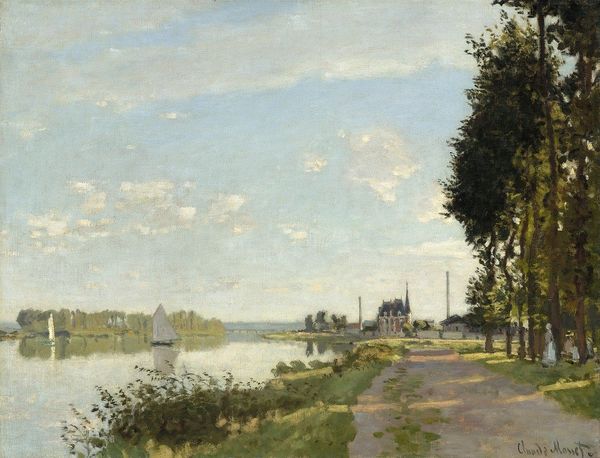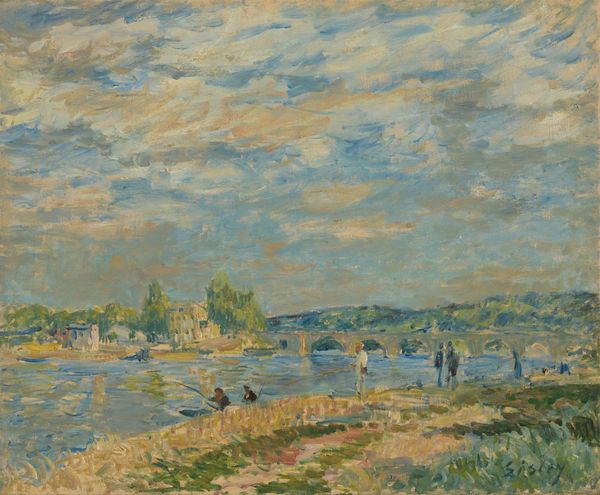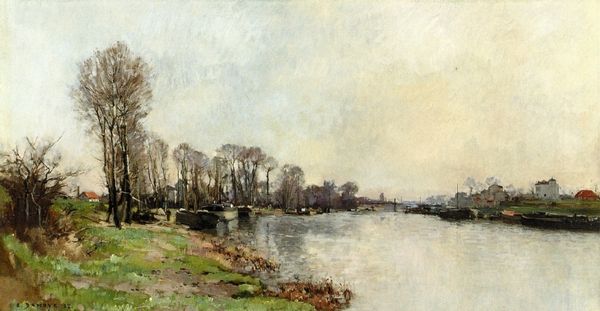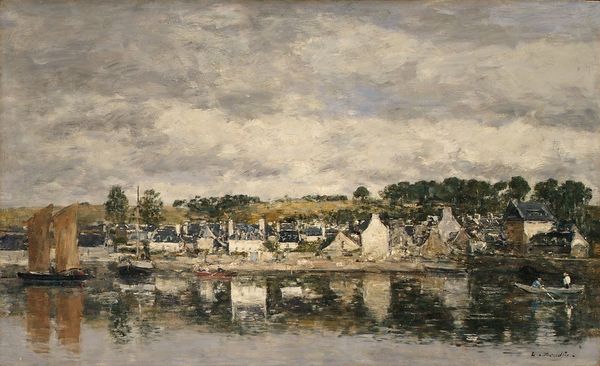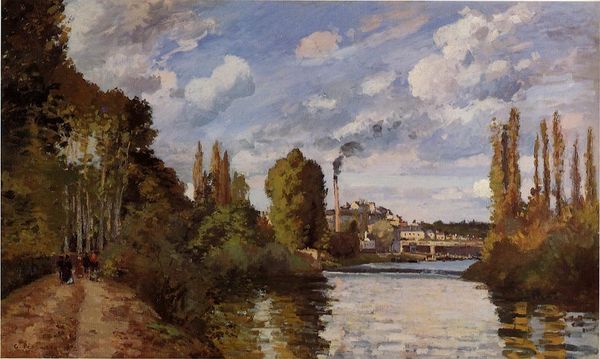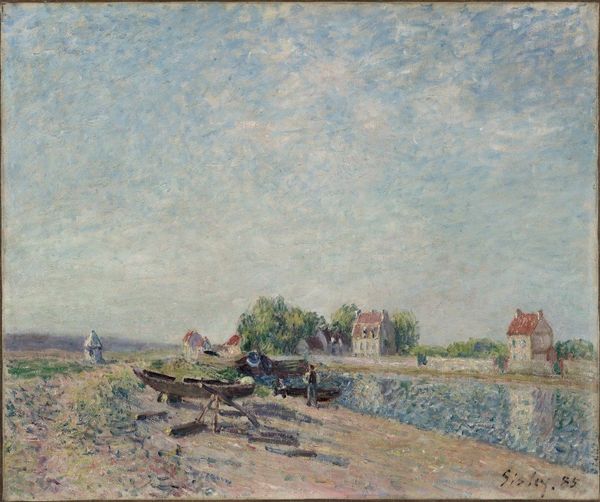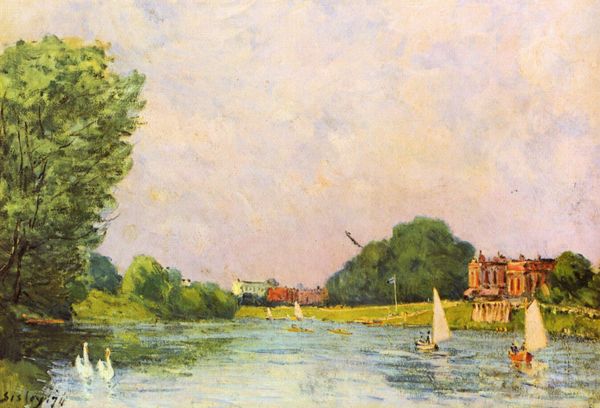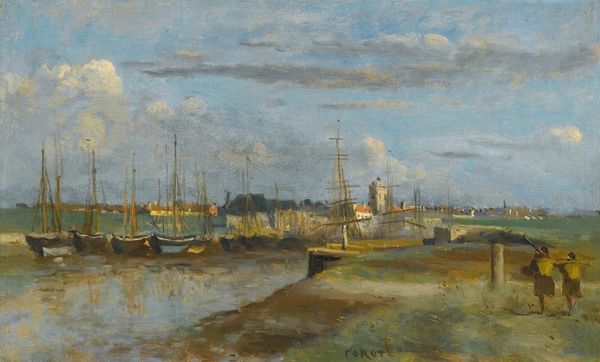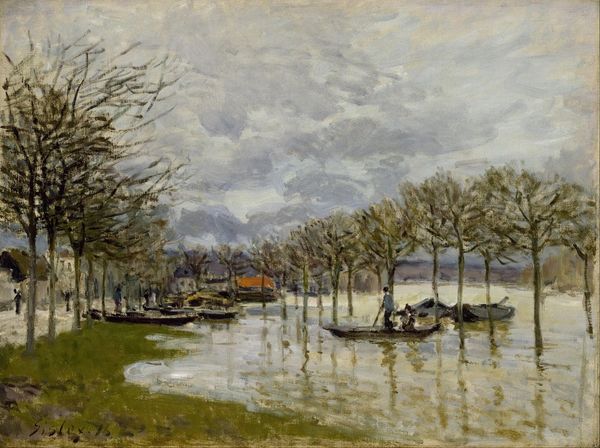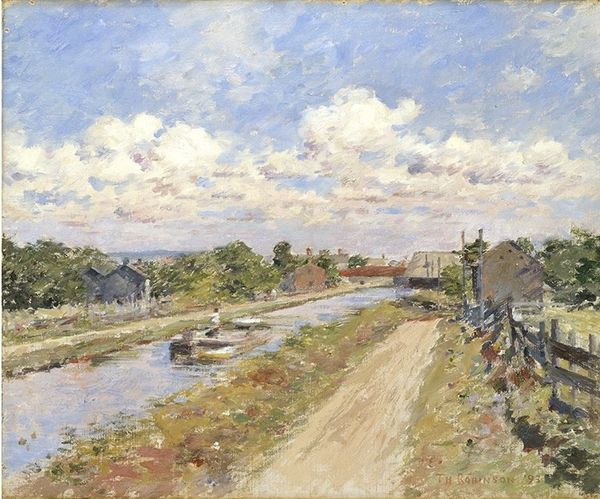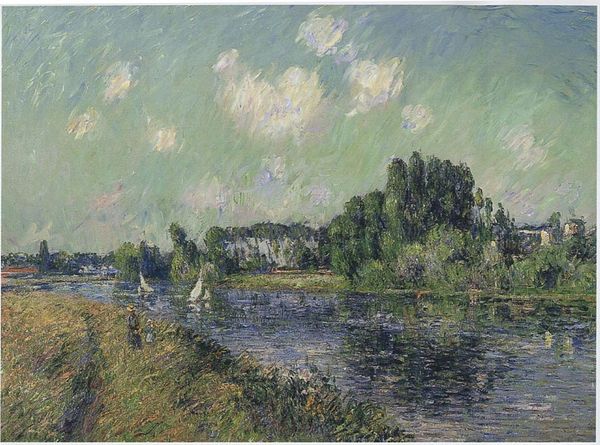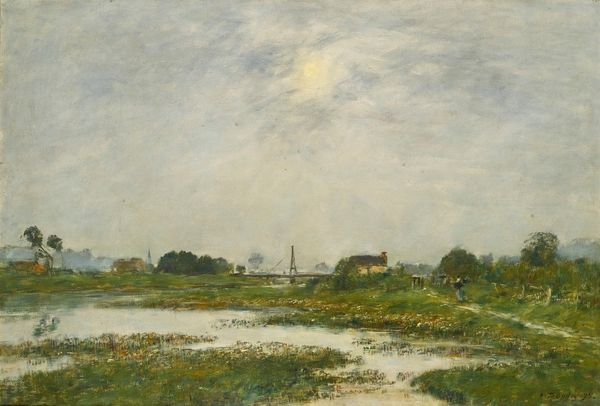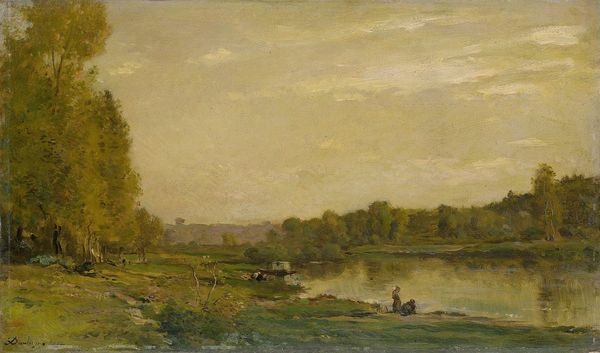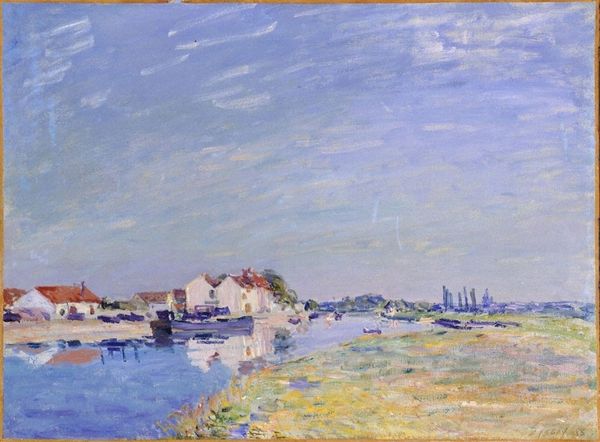
#
landscape
#
impressionist landscape
#
possibly oil pastel
#
oil painting
#
acrylic on canvas
#
underpainting
#
naturalistic tone
#
scenic spot
#
mixed medium
#
watercolor
#
warm toned green
Copyright: Public Domain: Artvee
Editor: So, this is Monet's *Bassin d’Argenteuil*, painted around 1872. Looking at it, I'm immediately struck by the contrast between the hazy sky and the rather solid, almost geometric, trees on the left. It feels very grounded in some ways, but also ephemeral. What do you see in this piece? Curator: What strikes me is the burgeoning industrialization subtly interwoven with the leisurely scene. Note the steamboats amidst the sailboats; a new, disruptive technology intruding on traditional leisure. It raises questions about access, who could afford these pursuits, and how class was being reshaped by technological advancement. Consider the clothing of the figures as well: how do their garments communicate class and social standing in relation to the rapidly changing times? Editor: That's fascinating, I hadn't really considered the steam aspect! It seems I was mostly caught up with the Impressionistic feel. Curator: The "Impressionistic feel" is itself a conscious aesthetic choice responding to the sociopolitical moment! Consider how traditional academic painting upheld established power structures through grand narratives and idealized forms. Monet, by embracing fleeting impressions, decenters that power, giving visual authority to the subjective experience of the individual in an era of mass social change. Doesn't that almost seem…radical? Editor: Absolutely, framing it that way makes it much more than "just" a pretty landscape. So, even something that seems like a simple scene of leisure carries this subversive element, a quiet commentary on society? Curator: Precisely. By understanding the context, we can see beyond the surface and recognize the artwork's deeper engagement with its time. What felt "pretty" suddenly becomes provocative! Editor: I never would have looked at it that way initially! Thanks; this perspective really shifts my understanding. Curator: And thank you for engaging with this approach. Art invites questions. Hopefully, viewers now have some new frames for viewing!
Comments
No comments
Be the first to comment and join the conversation on the ultimate creative platform.
